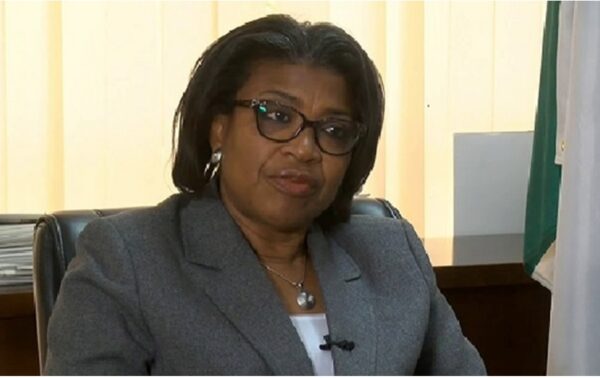3,000 Nigerians lost millionaire status in 10 years – Report
Nigeria, Africa’s largest economy, experienced negative millionaire growth of 30 per cent from 2012 to 2022, resulting in 2,949 individuals losing their millionaire status in one decade.
This is according to the 2023 Africa Wealth Report compiled by Henley and Partners.
According to the report, Africa’s ‘Big 5’ wealth markets include South Africa, Egypt, Nigeria, Kenya and Morocco.
“Together, they account for 56 per cent of Africa’s high-net-worth individuals and over 90 per cent of the continent’s billionaires,” it partly read.
The wealth categories are split into millionaires—individuals with a net worth above $1m; centimillionaires—individuals with a net worth above $100m and billionaires—individuals with a net worth above $1bn.
South Africa has 37,800 millionaires, 98 centimillionaires and 5 billionaires.
Egypt came second with 16,100 millionaires, 54 centimillionaires and 8 billionaires, while Nigeria ranked third with 9,800 millionaires, 27 centimillionaires and four billionaires. Kenya has 7,700 millionaires, 15 centimillionaire and no billionaires. Morocco has 5,800 millionaires, 28 centimillionaire and four billionaires.
Others include Mauritius (4,900 millionaires, 10 centimillionaire and no billionaire), Algeria (2,800 millionaires, eight centimillionaire and one billionaire), Ethiopia (2,700 millionaires, four centimillionaire and no billionaire), Ghana (2,600 millionaires, five centimillionaire and no billionaire) and Tanzania (2,400 millionaires, six centimillionaire and one billionaire).
However, total high-net-worth individual numbers in Africa fell by 12 per cent between 2012 and 2022. The continent currently has 138,000 millionaires, 328 centimillionaires and 23 billionaires.
Performance was constrained by poor growth in the three largest African markets, South Africa, Egypt, and Nigeria, which saw 21 per cent, 25 per cent and 30 per cent of negative growth.
Within that period, the report revealed that “Rwanda was the top performing market in Africa, with millionaire growth of 72 per cent, followed by Mauritius, the Seychelles, Uganda and the Democratic Republic of the Congo. Morocco and Kenya’s high-net-worth individual populations also grew solidly.”
Meanwhile, “Ethiopia and Ghana, whose millionaire populations had been growing rapidly until 2019, have struggled over the past few years, which pulled back their 10-year growth rates.”
Although five out of Africa’s top 20 saw a decline in their wealth in the past decade, none was more significant than Nigeria’s where 30 per cent of the wealthiest individuals fell below the million-dollar mark.
Aliyu Ilias is a development economist. He told media source that the decline is a natural result of several factors, including poorly-implemented government policies, the Covid-19 pandemic and soaring inflation experienced in the past eight years of the Buhari regime.
“First and foremost, it is a result of government policies. Most businesses in Nigeria suffered in the last five to 10 years due to unfavourable government policies.
“Apart from that, our inflation rate is quite high. Once you have high inflation, people don’t go to banks to borrow again.
“Our Monetary Policy Rate is also high. When you have a high MPR, people would not want to go to banks. They would stay aloof to allow things to normalise,” Ilias said.
He blamed the Covid-19 crisis, which spanned from 2020 to 2021, saying making the world stand still had terrible impacts on businesses operated by many of the unlucky 3000 millionaires.
Spotlighting the current regime, he said, “It is majorly government policy. President Buhari’s policies were not friendly to many businesses.
“If you remember when he became president, many people had to leave the country, some had to close their businesses, others hid their money because of the hurtful experience we had in 1984.”
He added that the naira redesign policy also impoverished more Nigerians who could not do business for lack of cash.
In an earlier presentation he delivered at the Lagos Business School, the CEO of the Financial Derivatives Company Limited, Dr. Bismarck Rewane, warned that Nigeria was on track to lose $18m of its Gross Domestic Product monthly.
He blamed this on the negative effects of the naira redesign policy of the Central Bank of Nigeria for the probable downturn saying, “Trade is settled mainly in cash and POS, although 70 per cent of trading transactions are settled by cash.”
“Therefore, the velocity of circulation in the trading sector (16 times) is approximately four times more than the formal sector.
“A decline in the velocity of circulation could reduce output in the trading sector. Hence its contribution to the GDP will fall,” he explained.
The 2023 Africa Wealth Report highlights the need for policymakers to promote more inclusive economic growth policies and address the structural challenges that limit growth.
Experts argue that the incoming administration must take urgent steps to address the challenges that limit growth and promote wealth creation. These measures, they argue, can help to create a more equitable and prosperous economy.








